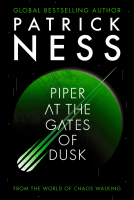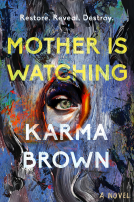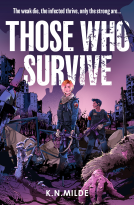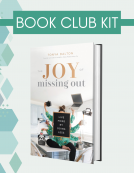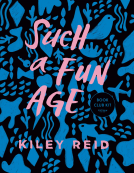
Feminist City
Claiming Space in a Man-Made World
by Leslie Kern
This title was previously available on NetGalley and is now archived.
Send NetGalley books directly to your Kindle or Kindle app
1
To read on a Kindle or Kindle app, please add kindle@netgalley.com as an approved email address to receive files in your Amazon account. Click here for step-by-step instructions.
2
Also find your Kindle email address within your Amazon account, and enter it here.
Pub Date Jul 07 2020 | Archive Date Jun 02 2020
Verso Books (US) | Verso
Talking about this book? Use #FeministCity #NetGalley. More hashtag tips!
Description
We live in the city of men. Our public spaces are not designed for female bodies. There is little consideration for women as mothers, workers or carers. The urban streets often are a place of threats rather than community. Gentrification has made the everyday lives of women even more difficult. What would a metropolis for working women look like? A city of friendships beyond Sex and the City. A transit system that accommodates mothers with strollers on the school run. A public space with enough toilets. A place where women can walk without harassment.
In Feminist City, through history, personal experience and popular culture Leslie Kern exposes what is hidden in plain sight: the social inequalities built into our cities, homes, and neighborhoods. Kern offers an alternative vision of the feminist city. Taking on fear, motherhood, friendship, activism, and the joys and perils of being alone, Kern maps the city from new vantage points, laying out an intersectional feminist approach to urban histories and proposes that the city is perhaps also our best hope for shaping a new urban future. It is time to dismantle what we take for granted about cities and to ask how we can build more just, sustainable, and women-friendly cities together.
Advance Praise
– Kirkus
“[An] insightful scholarly work … This provocative analysis will resonate with theoretically minded feminists.”
– Publishers Weekly
“Cities aren’t built to accommodate female bodies, female needs, female desires. In this rich, engaging book the feminist geographer Leslie Kern envisions how we might transform the ‘city of men’ into a city for everyone. Let’s all move there immediately.”
– Lauren Elkin, author of Flâneuse
"Feminist City is a damning stab at the subtle and overt manipulation of women in urban spaces. Kern’s interwoven references to her personal experience through childhood, adulthood, and motherhood make her deeply researched and whip-smart work infinitely readable. Kern shows that the ability of all women to exploit the city fully is a valuable, necessary gauge for city worth."
– Lezlie Lowe, author of No Place To Go
Available Editions
| EDITION | Other Format |
| ISBN | 9781788739818 |
| PRICE | $24.95 (USD) |
| PAGES | 224 |
Average rating from 23 members
Featured Reviews
 Media/Journalist 652998
Media/Journalist 652998
This book takes a unique aspect of gender equality, examining how the subtleties in our world can reflect the gender norms and sexism of our society. I really appreciated this take, since the macroscale subject matters of equal pay and domestic violence have been well documented, but the microcosm of these issues is still often misunderstood.
A much needed book in a world that is changed faster than ever. Reminds me very much of the book Invisible Women. A must-read for everyone
 Reviewer 572170
Reviewer 572170
“Feminist City” investigates the impact of the white patriarchy on how women navigate urban spaces. Although it’s something that I hadn’t really thought about until now, it immediately made sense to me. I knew that when NASA began recruiting women astronauts, the biggest hurdle was that all the equipment was designed by men, for men, so either women had to adjust how they used it (a difficulty in addition to, you know, SPACE FLIGHT), or NASA had to spend the money to overhaul everything. So the idea that cities have been built by, overwhelmingly, straight white men, for straight white men, and exclude how literally everyone else uses cities, putting them in the most vulnerable positions? Yep, I’m there, tell me more.
It explores the breadth and depth of city life, how different people use public areas and how they’re clearly designed for men without children and periods. The book is enlightening and the problems it spotlights are endlessly frustrating. I wish there were clear, easy answers to how to make a city not only safe but also navigable and useable for marginalized people, and it’s not the book’s fault that the answers so far are few.
This year, my goal is to read all the books on Kate Harding’s syllabus for “A Master Class in Woman’s Rage,” and “Feminist City” should 100% be added to it. It’s comprehensive and well written, and it brought the receipts. It’s going to be the go-to book for anyone looking to overhaul the patriarchal leanings of traditional urban planning and redesign.
Thanks to NetGalley and the publishers for a copy of this book in exchange for an honest review.
I really enjoyed this book about feminist geography. This is a topic that I often see being briefly mentioned in books about feminism, but I never read a book that focused on only covering this topic. I believe people don't give it enough attention.
There were many things I liked about this book. Some specific topics I was already aware of, but it was still very interesting to read more about them. Others surprised me because, even though they are fairly obvious once someone points it out, I have not given them enough of my attention in the past.
What I enjoyed the most was that the book felt inclusive from page 1. It was a very natural way of including everyone, which I prefer over the sort of "forced inclusivity" we see nowadays. And this book had a couple of moments when that was present too. It's like we need to mention the same speech every time, so people get that we are inclusive. And this book was doing that already in the natural way I mentioned, hence why this bothered me slightly.
The author and I disagree in a couple of topics and that's absolutely fine. My ideology doesn't have to be the same as every single feminist.
Overall, I highly recommend this book. It has very important information that people need to be aware of in order for the world to move forward.
 Jenni R, Reviewer
Jenni R, Reviewer
3.5 stars. This upcoming non-fiction book, set to release in the U.S. on July 7 by Verso, provides a detailed exploration of the ways in which the key concepts of intersectional feminism interact and are exacerbated by urban spaces and urbanism more broadly. If this is a subject that interests you, and you are looking for an academic perspective on this topic (that is still fairly readable) I would recommend you check this out. Kern is a strong writer and this book has five clear chapters ("City of Moms," "City of Friends", "City of One", "City of Protest", and "City of Fear") that utilize a variety of sources, ranging from academic texts, trade publishing books, and media entertainment like t.v. shows and movies, to provide examples of different ways women (and other marginalized groups) use cities or struggle to use cities.
Personally, however, this book felt a bit too academically-focused for me. As someone who is looking to enter the urban planning profession, I was hoping this would be a bit more of a solution and case-study based approach to examining how cities can be created with a gendered lens and how intersectional feminism can be utilized in producing more equitable, usable cities. Instead, Kern relies heavily on what is typical in academic writing (something that I personally have grappled with regarding academia more broadly): a critique of existing systems without providing solutions. While I completely understand the use of critique in the greater academic canon, I still personally prefer more solution-based non-fiction with a subject matter such as this. This did lower my rating, but I believe that may be in part because of my expectations of what Feminist City would be, as I do find the content of this to be important and the work itself to be cohesive and well-written!
A very interesting academic book on women's views on the city (cities) they live in, with in-depth analysis of the gender-specific experiences of public spaces, and tons of sources to back up every argument made by the author.
To put in the hands of all your friends interested in feminism, social inequalities and the sociology of urban spaces.
Readers who liked this book also liked:
Elizabeth Arnott
General Fiction (Adult), Historical Fiction, Mystery & Thrillers
Ben Devlin
Literary Fiction, Mystery & Thrillers, True Crime
We Are Bookish
Business, Leadership, Finance, Nonfiction (Adult), Self-Help
